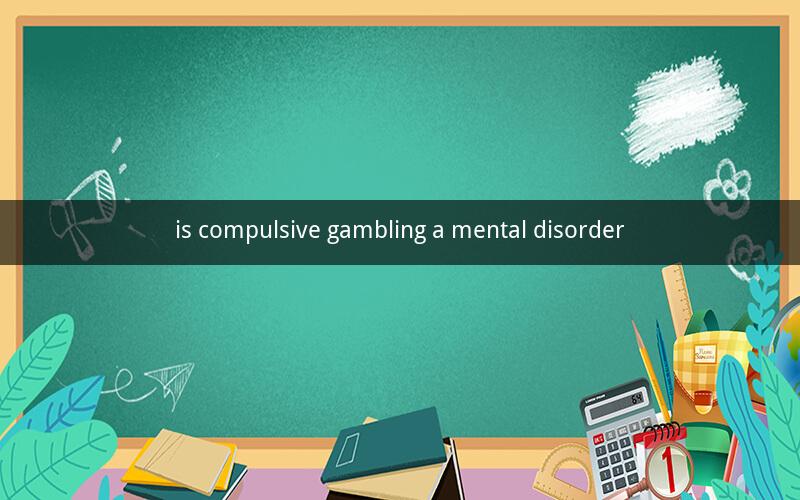
Table of Contents
1. Understanding Compulsive Gambling
2. Classification of Compulsive Gambling
3. Psychological Aspects of Compulsive Gambling
4. Neurological Underpinnings of Compulsive Gambling
5. Societal and Cultural Factors Influencing Compulsive Gambling
6. The Link Between Compulsive Gambling and Mental Disorders
7. Diagnosing Compulsive Gambling
8. Treatment Approaches for Compulsive Gambling
9. The Impact of Compulsive Gambling on Individuals and Society
10. Conclusion
1. Understanding Compulsive Gambling
Compulsive gambling, often referred to as gambling disorder, is a behavior that can be difficult to control, leading to significant distress and negative consequences. It involves persistent and recurrent maladaptive patterns of gambling that disrupts personal, family, or occupational functioning. This form of gambling can take various forms, including slot machines, lottery tickets, sports betting, and online gambling.
2. Classification of Compulsive Gambling
The Diagnostic and Statistical Manual of Mental Disorders (DSM-5) classifies compulsive gambling as an addictive disorder, specifically under the category of substance-related and addictive disorders. This classification acknowledges the similarities between compulsive gambling and other addictive behaviors, such as substance use disorder.
3. Psychological Aspects of Compulsive Gambling
Psychological factors play a crucial role in the development and maintenance of compulsive gambling. These may include low self-esteem, depression, anxiety, and a need for excitement. Individuals with a history of trauma or abuse may also be at a higher risk of developing compulsive gambling.
4. Neurological Underpinnings of Compulsive Gambling
Research has shown that certain brain areas, such as the prefrontal cortex and the nucleus accumbens, are involved in the development of compulsive gambling. These areas are responsible for decision-making, reward processing, and impulse control. Abnormal activity in these regions may contribute to the addictive behavior.
5. Societal and Cultural Factors Influencing Compulsive Gambling
Societal and cultural factors can also influence the prevalence of compulsive gambling. Access to gambling opportunities, advertising, and the normalization of gambling behaviors in certain cultures can contribute to the development of gambling disorder.
6. The Link Between Compulsive Gambling and Mental Disorders
Compulsive gambling is often associated with other mental health conditions, such as depression, anxiety, and substance use disorders. The relationship between these conditions is complex, with some evidence suggesting that one condition may precede the other. For example, depression may lead to compulsive gambling as a form of self-medication.
7. Diagnosing Compulsive Gambling
Diagnosis of compulsive gambling involves assessing the presence of specific criteria outlined in the DSM-5. These criteria include the inability to control gambling, preoccupation with gambling, chasing losses, lying about gambling activities, and continued gambling despite negative consequences.
8. Treatment Approaches for Compulsive Gambling
Treatment for compulsive gambling typically involves a combination of therapy, support groups, and medication. Cognitive-behavioral therapy (CBT) is particularly effective in helping individuals develop coping skills and address underlying psychological issues. Support groups, such as Gamblers Anonymous, can provide additional peer support and resources.
9. The Impact of Compulsive Gambling on Individuals and Society
Compulsive gambling can have devastating consequences for individuals and their families. Financial difficulties, strained relationships, and legal problems are common outcomes. On a societal level, compulsive gambling can lead to increased crime rates, economic burden, and social instability.
10. Conclusion
Compulsive gambling is a complex mental disorder that requires a multifaceted approach to treatment. Understanding the psychological, neurological, and societal factors contributing to this condition is essential for effective intervention. By addressing these factors, individuals with compulsive gambling can overcome their addiction and lead healthier, more fulfilling lives.
Questions and Answers
1. Q: What is the most common cause of compulsive gambling?
- A: The most common cause of compulsive gambling is a combination of genetic, psychological, and environmental factors.
2. Q: Can compulsive gambling be cured?
- A: Compulsive gambling can be treated effectively, but it is a chronic condition that may require ongoing management.
3. Q: Is there a genetic component to compulsive gambling?
- A: Yes, research suggests that there is a genetic component to compulsive gambling, similar to other addictive behaviors.
4. Q: How can someone know if they have a gambling problem?
- A: Signs of a gambling problem include preoccupation with gambling, lying about gambling activities, and continued gambling despite negative consequences.
5. Q: Are there any medications that can help treat compulsive gambling?
- A: Medications such as naltrexone and topiramate have been shown to be effective in some cases of compulsive gambling.
6. Q: How can family members support someone with a gambling problem?
- A: Family members can support someone with a gambling problem by seeking help for themselves, encouraging treatment, and maintaining boundaries.
7. Q: Is online gambling more addictive than traditional gambling?
- A: Online gambling can be more addictive due to its accessibility and the potential for rapid, continuous play.
8. Q: Can therapy alone be effective in treating compulsive gambling?
- A: Therapy, particularly cognitive-behavioral therapy (CBT), can be effective on its own or in combination with other treatment approaches.
9. Q: What is the most effective treatment for compulsive gambling?
- A: The most effective treatment for compulsive gambling is often a combination of therapy, support groups, and medication.
10. Q: How can society address the issue of compulsive gambling?
- A: Society can address the issue of compulsive gambling by increasing awareness, providing accessible treatment options, and implementing policies to reduce gambling opportunities.